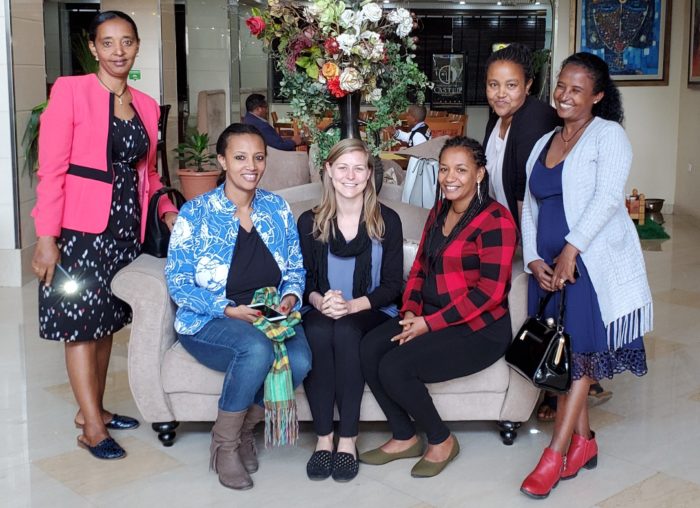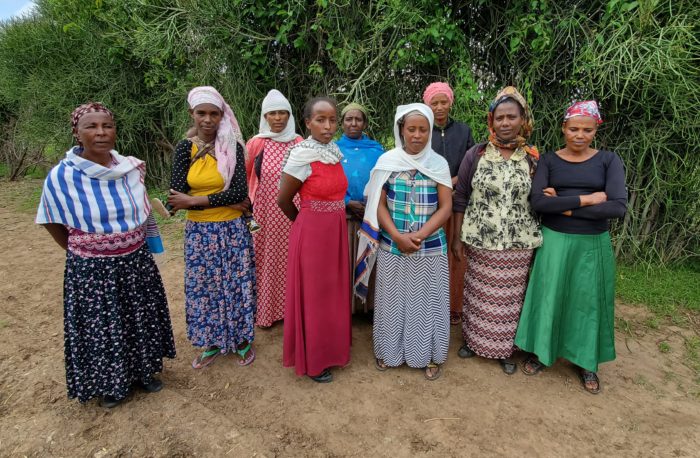Gender and Youth Specialists in Ethiopia Hold Team Retreat
In August, Banyan Global gender and youth specialists on the United States Agency for International Development (USAID) Feed the Future Ethiopia Value Chain Activity held a team retreat. As a subcontractor to Fintrac, Banyan Global’s role on the project is to provide technical assistance, capacity building, and project management support for gender equality, social inclusion, and positive youth development.

The three-day gathering was an opportunity to welcome new staff and brainstorm challenges and opportunities in gender integration and youth engagement across the project’s focus regions. Rachel Mahmud, Banyan Global gender specialist, joined five gender and youth specialists based in four project regions to discuss upcoming work plans and how to better demonstrate the team’s impact.
Following the retreat, Ms. Mahmud and Aynie Habtamu, senior gender and youth specialist, travelled to the Oromia and Amhara regions to visit project beneficiaries. Specifically, they visited several women entrepreneurs who are part of a mentorship program that aims to increase women’s economic empowerment through agriculture. They discussed the opportunities and challenges that women smallholder farmers face in growing their agribusinesses, and observed how the project supports female farmers through training, capacity building, and introducing improved technologies. With USAID’s support, the project has helped female farmers improve agricultural productivity in target value chains such as dairy, poultry, chickpea, and meat and live animals.

During the field visits, Banyan Global’s gender and youth specialists also conducted activities with members of agricultural cooperatives to address gender roles and responsibilities on and off the farm. The project uses a participatory approach known as the Transformative Household Methodology (THM) to spark dialogue within households and communities. THM looks at both productive and household responsibilities and identifies whether there are household members – typically women and girls – who are responsible for a disproportionate amount of work. This includes unpaid work such as caretaking, cleaning, cooking, and fetching water, among other things. The project uses this approach as one way to integrate gender and positive youth development into farmer field days, trainings, and workshops. To date, 19,532 farmers (4,604 female) have been trained using THM.
